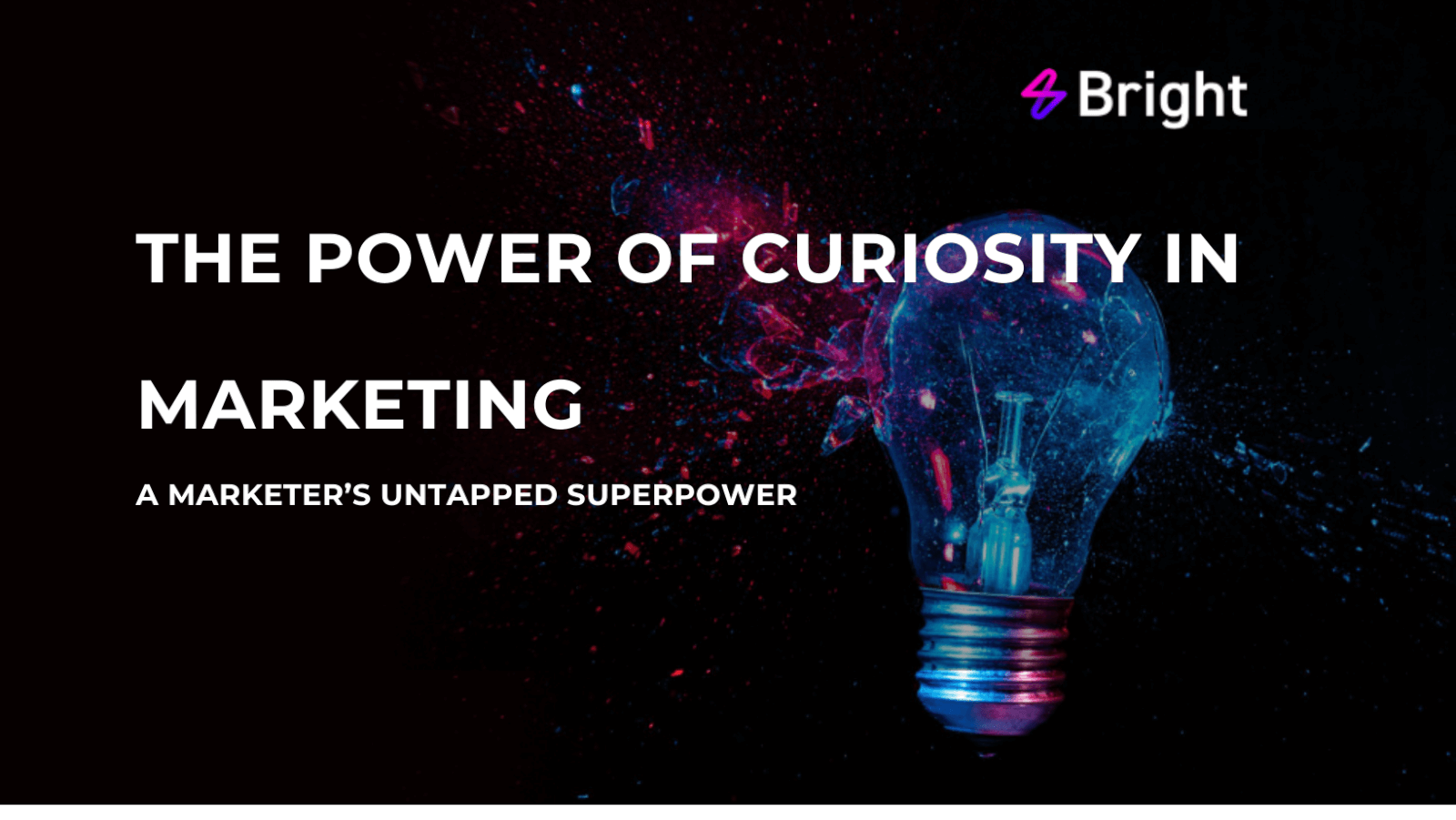“I am neither clever nor especially gifted. I am only very, very curious”
I love this quote, because whilst there are a lot of smart people in the world, the greatest innovations in history all started with curiosity, and probably one of the following questions: ”why, what if, and how could we…”
As children, we are innately curious, but the older we get, the less our curiosity is nurtured, particularly in the workplace. A survey in 2018 by the Harvard Business School showed that only about 24% reported feeling curious in their jobs on a regular basis, and about 70% said they face barriers to asking more questions at work.
Since then, more research has been released demonstrating the power of curiosity for business, but speaking with fellow marketers, bringing curiosity into their jobs remains challenging.
So why is curiosity so powerful and what can we do to bring it back?
The power of curiosity
“You must ask why? Why? Because if you know why you are carrying out your mission, when things **** up…you will know how to achieve what you set out to achieve in a different way”.
Spoken by Jack O’Connell in BBC’s new drama SAS Rogue Heroes and it gets to the crux of why being curious can be so powerful. For businesses defining a shared vision/purpose, business outcome or goal, ensuring a common understanding can be difficult and only gets harder as the size and complexity of a business increases. Understanding the why can be a powerful way to achieve that common understanding, strategic alignment, and buy-in and give your teams the empowerment to deliver it.
It also:
- Increases innovation and creativity – curiosity removes confirmation bias and the trap many businesses can make by making decisions in a vacuum. Challenging assumptions, not settling for the first solution can result in great and better alternatives to meet market challenges or opportunities head on
- Improves team performance – curiosity helps us better understand our colleagues and our customers, increases empathy so teams can collaborate and work together with less conflict and better serve their audiences
- Increase adaptability and resilience – studies have shown that curiosity helps us view and better respond to tough situations
Why do teams find it difficult to be more curious?
As alluded to above, there’s a cultural component at play and the same research from Harvard Business School showed that despite the perceived benefits of curiosity, the associated risks and costs outweigh these.
For many marketers, making time to be curious is challenging, as teams do more with less and balance competing priorities across the business, curiosity drops. Even with time, the next challenge is knowing where to start, what data to collect, assess and analyse to generate meaningful insights that informs activity.
So, what can we do to bring curiosity back?
There are several ways businesses can encourage curiosity but the one thing that will have the most profound effect and can be the most challenging to implement is creating a culture of curiosity.
What does that mean in practice?
For business leaders it means thinking about how you can:
- Ensure psychological safety – there are more qualified experts to share insights on this (shameless plug coming) like our client LIW but giving people the autonomy to try and potentially fail is critical. Leaders need to empower their teams to push the boundaries, learn from them and keep trying.
- Encourage teams to challenge and probe – leaders must be open and welcome individuals to question and challenge current norms and conventions. Leading with a growth mindset that focuses on continual improvement is important and something we look at in our agile marketing leadership training.
- Model curiosity – ask questions, actively listen. Acknowledge that regardless of experience and expertise there is always more that we can learn and when the answer isn’t clear accept it and work with the right individuals to fill that gap.
For marketers and their teams you need to think about:
- How you can ask more why. Why did our activity work well, didn’t work well, or perhaps more importantly what didn’t work as we expected and why?
- Incorporate experimentation into your activity – this is quite common across digital channels with A/B testing etc but how could you expand this? How can you incorporate experimentation at a strategic as well as tactical level? Targeting, channel activation, products and propositions provide great opportunities to experiment, innovate and fail forward faster.
- Make time for you and your team to be more curious. This could be in the form of curiosity sessions, brainstorms and even in your planning or wrap-up activity. In agile marketing, sprint planning sessions and reviews and retrospectives provide great opportunities to ideate and evaluate how your activity is performing and how you’re working together as a team and what you can be doing differently to achieve business outcomes
What next?
Wherever you start, the key is to get going. Whilst you shouldn’t underestimate the level of change or support your team or organisation will need, it’s very easy to overthink the process. Identify a pilot, find your team, work together to establish your rules of engagement together and with the wider business and use the learnings from this pilot to refine and build. Think about the skills you need to develop (particularly around data analysis) and start small. Momentum here is more important than speed and the benefits are potentially endless.
Get in touch if you want to find out more about how you can nurture curiosity in your teams for better marketing performance.


